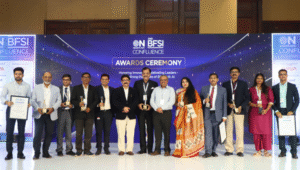Empowering EV Industry through Sustainable Talent Management & Industry-Academia Collaboration

Employees are the bedrock of an organisation. But finding skilled talent is still a challenge, as many industries grapple with significant skills gaps, which hinders growth. Due to a lack of real industry-academia collaboration, there is a mismatch of expectations—the skills taught in colleges and universities sometimes do not align with industry demands, resulting in unemployment and hiring woes. The challenge is further compounded in the EV industry, which is undergoing rapid transformational changes. Being in its nascent stages, with newer innovations and developments marking its growth, the unavailability of skilled talents is a significant roadblock.
According to the Automotive Mission Plan 2026, the Indian automotive industry is poised to increase the value of the industry to over 12% of the nation’s GDP and create an additional 65 million jobs. As the industry continues to evolve, the skills required are also evolving at an overwhelming pace, further adding to the talent shortage concerns.
With increasing automation and digitisation, this talent crunch is becoming more pronounced, with companies struggling to find skilled professionals who can bridge this gap between increasing demand and limited supply. As the war for talent intensifies in the competitive job market, retaining skilled talent poses another problem. Although the industry is rife with challenges, beneath those pitfalls lie opportunities for growth.
Sustainability lies at the heart of the EV industry. By ensuring sustainability in fuel use, reduced ecological footprint, and economic viability, the industry is contributing to a healthy planet while positioning themselves for long-term success. Integrating sustainability into HR practices and aligning it with the organisation’s overarching goals reflects a forward-thinking approach to sustainability and a balanced approach to organisational growth and environmental responsibility.
Sustainability is a crucial indicator of employee engagement and retention. Organisations that underscore sustainability as a part of their business strategy attract more employees because they feel it adds meaningful value to their work. Studies have shown that employees are more inclined to work at socially and environmentally responsible companies where being a part of a bigger purpose motivates them to be more productive. According to a report by IBM, 67% of survey respondents are more willing to apply for and 68% would accept jobs from environmentally sustainable organisations.
As the constitution of the modern workforce is evolving, the expectations of the upcoming generations to see their values reflected in the workplace are gaining ground. Younger employees are on the lookout for enterprises that make a difference. Since a sustainable organisation signals its commitment to people and the planet over profits, it will definitely stand out.
Companies that champion green goals and encourage Environmental, Sustainability, and Governance (ESG) initiatives build positive company reputations, both internally and externally. Employees are drawn to companies that shoulder corporate social responsibility and feel a sense of pride in the workplace.
Also, identifying talent that will be sustainable in the long run should be the key driver of hiring processes. Hiring talent not just for skill but for intent—intent to create something futuristic and impactful with a deep-rooted concern for climate change and environmental impact—will definitely reduce attrition rates.
And a company’s journey to sustainability is incomplete if it is limited to just hiring. New sustainability skills need to be inculcated and practices embedded in the organisation’s overall functioning. Every job, every function, and every process within an organisation will have to adapt to green practices to bring about a sustainability transformation. For example, the logistics industry will have to optimise fuel usage, transport modes, routes, etc. to reduce its carbon footprint. It can begin with something as simple as going paperless, but it needs to begin now.
Most importantly, the efforts towards a green future need to be driven on an everyday basis, as success depends on constant and consistent efforts. The time is ticking and employees are thinking beyond their jobs. Your organisation’s commitment to sustainability will not only drive global change but also foster an environment that attracts and retains a responsible workforce.
On the other side, there is a surge in demand for green skills among employers, highlighting the growing importance of ESG in the recruitment landscape. By keeping sustainability at the core of talent management, organisations can help translate the Sustainable Development Goals and net-zero commitments into reality.
Author: Pranay Prakash, CHRO, BluWheelz
Disclaimer: The views expressed in this article are solely those of the author and do not necessarily reflect the opinions or policies of ObserveNow Media. The author is solely responsible for ensuring the accuracy, completeness, and validity of the information presented, encouraging readers to independently verify and seek professional advice if needed.
















